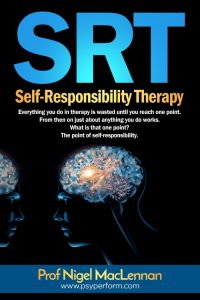How much do we cause our own illnesses and problems?
How much do we cause our own illnesses and problems? (Unknowingly.)
Surely it is a small number? Surely it is vanishingly rare? How much do we cause our own illnesses and problems?
Let’s look at the facts and figures. Only 64.3% of UK adults are overweight or obese.
ONLY? That’s nearly 2/3, and that is the average!
When we look at deprived areas the figure increases a little to 75.3%.
A LITTLE? That’s 3 in every 4.
Perhaps being outside of the healthy range doesn’t cause us any harm, and such figures are just alarmist. Yes, it’s true, our risk of developing diabetes only increases by 80 times if we are obese.
80 TIMES!
Clearly (!) taking self-responsibility for our body weight is a minor issue.
Pulmonary health has improved over the decades since we realised that smoking kills us. We are now down to only 21% of people in the UK smoking. That’s wonderful news.
More great news: only 18% of UK deaths (over aged 35) each year are estimated by medical experts to be caused by smoking.
ONLY? ONLY?
 Let’s put those two figures together: 21% of people smoke and 18% of all deaths are caused by smoking. That’s a near 100% wipe out rate!
Let’s put those two figures together: 21% of people smoke and 18% of all deaths are caused by smoking. That’s a near 100% wipe out rate!
Still, we hear, even well-educated people arguing that self-responsibility is not a factor in health.
Clearly, the ironic statements above are designed to highlight the ridiculousness of the stance taken by those who claim self-responsibility has no part in health. (A touch of humour for our American friends: irony is when a Brit says one thing while meaning the exact opposite.)
In physical health, it is extremely easy to demonstrate the link between lack of self-responsibility and negative outcomes.
In mental health, the link is just as strong.
In fact, it may be stronger. Why? In physical health there is a long period between the lack of self-responsibility and the consequences that follow. In mental health that time frame is so short that it is almost immediate.
What state of mental health do you think you would be in if you spent a full day thinking of all the negative things in your life, all the harms that had been done to you, all the injustices, all the… we should stop there because just reading that list is probably having a negative impact.
Now imagine, doing that day after day. What would that do to your mental health?
You obviously don’t want to do that to yourself. Why? Because you sense, in a self-responsible way, that doing so would be harmful to you.
What about the aspects of life where we have self-responsibility blind spots? What about people who are not self-responsible? What about people who don’t know how to be self-responsible? Or don’t know how to be self-responsible in that one key area? What about those who have no exposure to being self-responsible? What about those who have been led to believe that being self-responsible makes no difference, that it is, somehow, for others, not them? What will happen to their mental health? To their physical health?
Now, with the emergence of SRT, we have a better understanding of how to help people reach the point of self-responsibility.
What impact could it have on you, if you knew how to take self-responsibility in each of the problem areas of your life? What if you could reach full self-responsibility in those blind-spot areas quickly, systematically, and reliably? What would that do for your quality of life? For your quantity of life? For your reputation? For your career? For your family? For your levels of happiness?
If you have a problem that is impairing your life in some way, and you want to address it, you know that ultimately you are the only person who can. You could take a few more months, years or decades to figure out how, or you could learn how in just one session (two, in a few cases, or three, almost never).
Will you take self-responsibility and call this number?
![]()
Dr Nigel MacLennan, Chartered Psychologist, Fellow of the British Psychological Society
